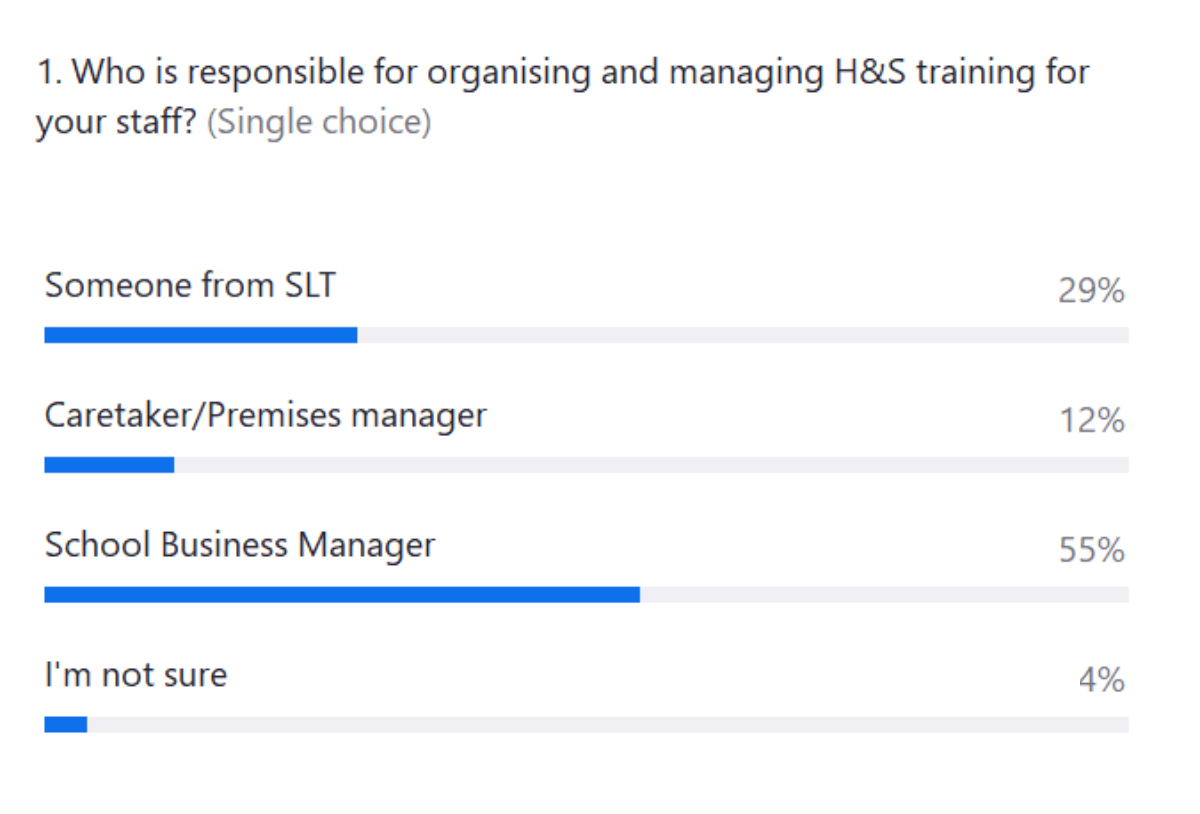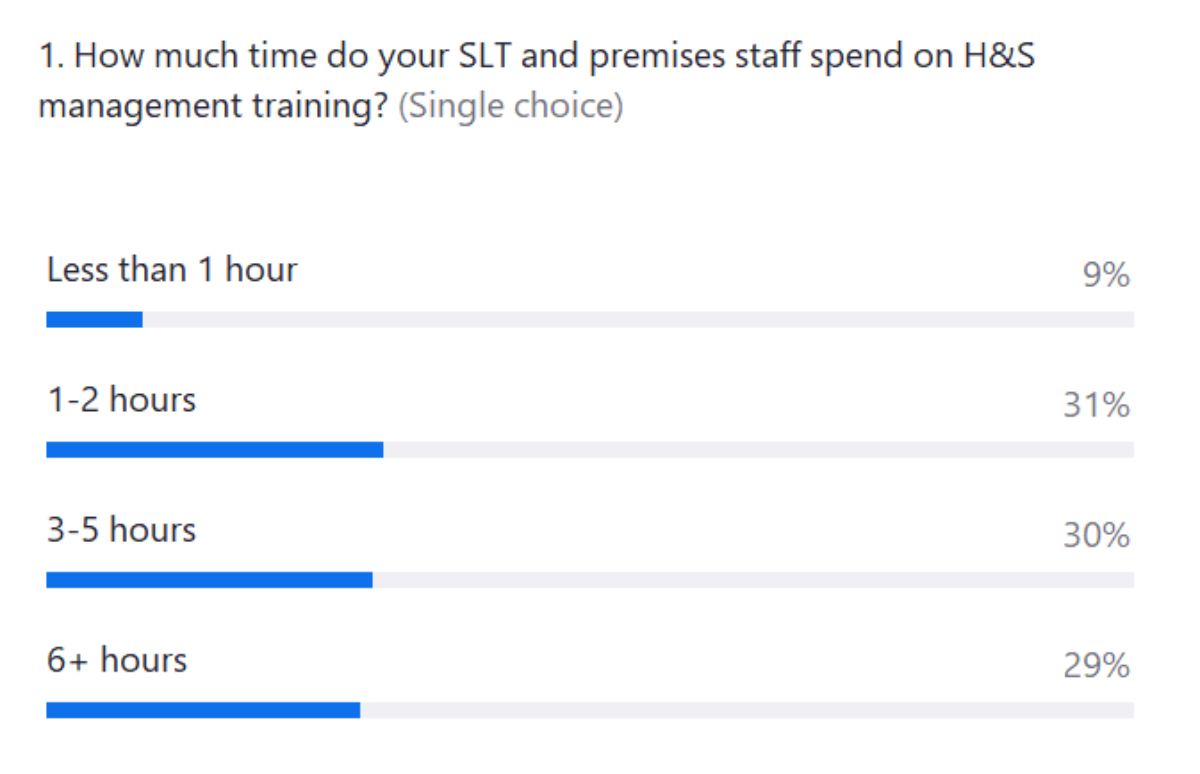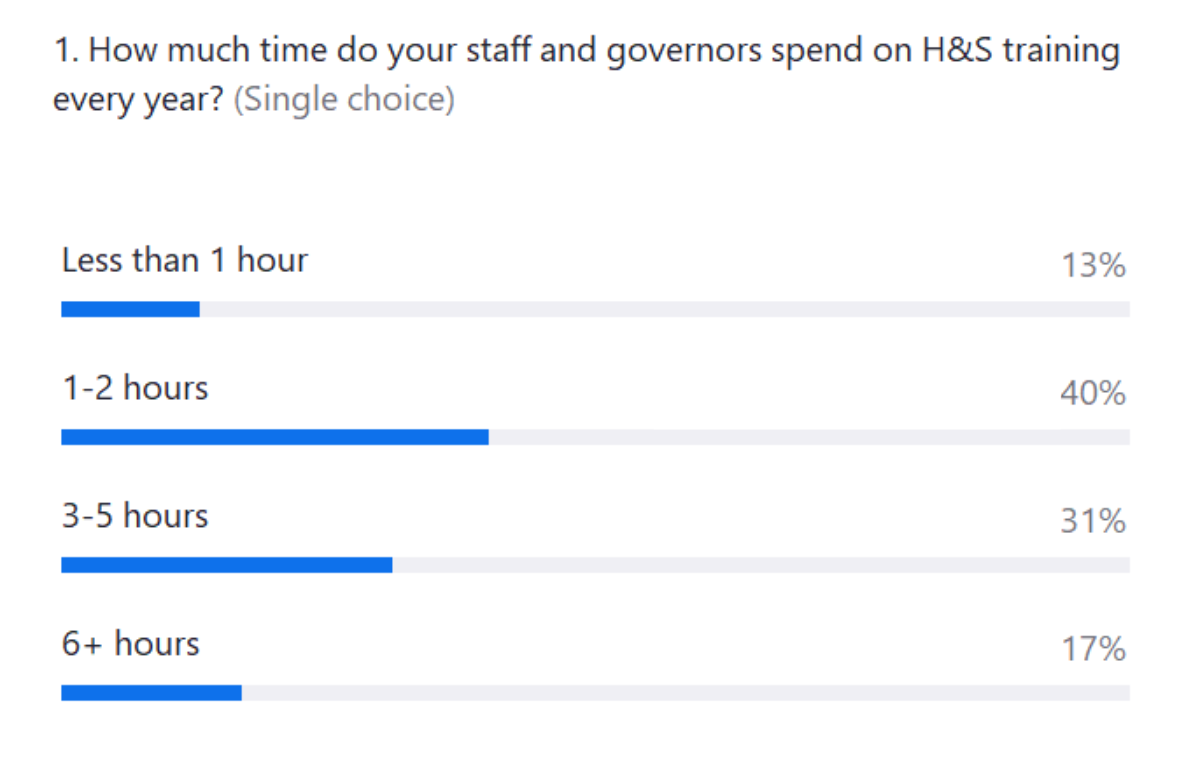The Secret to Effective Compliance Training Every School Leader Should Know

This blog is based on Judicium’s Health and Safety ‘Sofa Session’ on the 15th of October, with our resident expert Mike Wright.
Case Study: Beyond the Risk Assessment: Why Training Is the Real Safeguard
In January 2023, a 19-year-old student lost his life after choking on a paper towel at school. The student, who had Pica—a serious eating disorder that causes individuals to eat non-food items—was supposed to be under close supervision to manage this known risk.
However, a subsequent Health and Safety Executive (HSE) investigation revealed a critical gap:
None of the staff in his class team had received specific training on managing the safety risks associated with Pica.
Despite a similar near-miss incident just days earlier, the school failed to act. The investigation found that while risk assessments existed on paper, the training needed to put those precautions into practice was missing. The result was devastating — a preventable death and a £300,000 fine for the academy trust.
HSE Inspector Rebecca Whiley stated plainly:
“This tragic incident could have easily been avoided if [he] was being closely supervised, as he should have been… His death resulted from a series of management failures throughout [his] time at the school.”
This case underscores a vital truth: policies and risk assessments are only as strong as the training behind them. Without equipping staff to recognise and respond to real risks, compliance becomes little more than a checklist exercise that can cost lives.
The Importance Of Compliance Training
Compliance-related training is often viewed as merely a list of mandatory online courses that everyone completes annually. However, this ‘tick-box’ activity helps your school or Trust to:
Ensure people who work for you know how to work safely and without risks to health.
Develop a positive health and safety culture, where safe and healthy working becomes second nature to everyone.
Meet your legal duty to protect the health and safety of your employees.
The Health and Safety at Work Act 1974 requires you to provide the information, instruction, training, and supervision as is necessary to ensure, so far as is reasonably practicable, the health and safety at work of your employees.
Poll 1

Based on the responses to the poll above, we conducted two further polls to determine how much time is spent on Health & Safety training for specific roles.
Poll 2


Getting Training Right: What Your School or Trust Really Needs
Always start with your central policy. Your Health and Safety Policy should set out how you will comply with relevant legislation by ensuring suitable training is provided for each defined job role with relevant compliance-related responsibilities.
This works in conjunction with each risk assessment you and your colleagues write for every activity, task, and area of the school.
Through the policy and risk assessment information, you will complete a Training Needs Assessment that identifies which job roles require which training course and at what frequency to identify who needs what level of training to be competent in their role.
Legal obligations:
All staff should receive appropriate health and safety training. Our Health & Safety service supports clients to provide every staff member with health and safety, fire, manual handling, working at height and stress management as a basic induction course via eLearning as the core requirement to cover all common hazards and safety awareness.
Those with delegated responsibilities must have suitable training for that role. This includes:
- Trust Compliance Leads, Head Teachers/Executive Heads and Senior Leaders: The Senior Leadership must clearly understand overall compliance requirements within their school or Trust. This will include the legal requirements for managing health and safety, fire, personal responsibilities, delegating to team members, and implementing a health and safety management system.
- Business Managers/Bursar/H&S Lead: A nominated team member who takes the role of Health and Safety Lead on behalf of the Head Teacher/Principal (or it may be the Head Teacher in a small school) needs to be provided with suitable management-level training to understand the day-to-day management of health, safety and fire in a school. This will include risk assessment, managing suitable controls, accident investigation, and working with other teams on preventative maintenance and high-risk subjects.
- Practical Department Staff - including Technicians: These staff members will have some of the most specialist requirements regarding training, which will range across a wide scope of disciplines.
-
- Some examples include P.E. staff training on a new climbing wall, science training on radioactive sources, and D&T staff training on a gas-powered forge or art staff using an electric kiln safely.
-
- The key point for practical departments is recognised specialist support from approved bodies. CLEAPSS for science, DATA for technologies, AfPE for P.E. , and NSEAD for art.
- NB: Not only will practical departments need specialist training, but they often need a higher level of manual handling and work-at-height training depending on the equipment they are using, e.g., drama has a tallescope to access lighting, and science has a step ladder in a chemical store.
- Fire Wardens: Nominated fire wardens are given additional responsibilities, which you are required to train them in. Providing suitable instruction and training for this role is key to ensuring they follow the right procedures in an emergency.
-
- This starts with fire warden training (eLearning is sufficient for smaller sites, while more complicated sites should consider instructor-led training).
-
- If they assist colleagues with personal emergency evacuation plans for staff or pupils, inspectors expect to see a record of training briefings provided to go through the required plans.
- NB: If your school has evacuation equipment such as EVAC chairs or rescue sledges, these require specific in-person training before use.
To manage fire safety effectively, we provider CPD accredited Fire Warden training. Find out more here.
- Premises Staff: Premises teams come with a wide range of subjects that may apply to your building. The most common areas for in-person, instructor-led training are: Legionella management, asbestos awareness, work-at-height that includes ladders, manual handling, hazardous substances (COSHH), managing contractors and work equipment/electrical equipment.
- Refresher training can be provided through online learning, but due to the risk level associated with their role, instructor-led training is recommended for initial courses.
Learn more about our CPD accredited training for Premises Managers here.
- Educational Visit Coordinators: EVC’s are nominated members of staff who will complete a quality check on all trip plans, risk assessments, staff requirements, etc. for educational visits. This can be a member of the support team or the Head Teacher, depending on the size of the school.
- NB: The Department for Education has clarified that whilst it is not a legal requirement to have a trained, nominated EVC in place, it is an expectation, and by training an EVC, you will be able to monitor and manage all plans that Trip Leaders produce, including emergency planning, risk assessment, first aid, and medicines, etc.
Train your members of staff to become Educational Visit Coordinators. Find out more about our 3 hour CPD accredited course here.
Poll 3
.png)
Choosing Your Training Methods
A big part of deciding which training method to use can depend on the team or individual concerned, as everyone learns differently.
When you have several core courses to deliver to every member of staff, eLearning is a great method as you can issue it to everyone at once. They can then complete it at a pace or time that suits them.
However, not everyone learns well remotely or from a screen, so you may find some staff members would benefit from an in-person training course. Alternatively, you can also try having a member of the SLT sit down with the employee to support them as they complete the eLearning course. Also, group safety briefings can be a great tool to foster a discussion across staff on an inset day.
Some subject areas need to be in-person, such as when there's a new subject or the learner hasn’t had direct instruction on the topic previously.
Manual Handling is a good example where a trainer needs to be confident that a Premises Manager has received in-person instruction on how to plan and lift/move heavy items safely. Another example is where asbestos awareness is discussed in person to ensure a clear understanding of what must be recognised in their own building.
Where staff briefings are sufficient, e.g., on the best practice of cleaning up biological hazards or managing trip hazards in schools, Toolbox Talks can be considered a recordable way of providing staff briefings. Judicium has a library of Toolbox Talk templates that are automatically available to our Health and Safety clients to utilise. They are a great tool to use to refresh staff on safe working practices following an accident or incident.
Plan a Refresher Schedule For All Staff
The Management of Health and Safety at Work Regulations 1999 identifies situations where health and safety training is particularly important:
- When people start work: Safety induction with core training
- On exposure to new or increased risks: Specialist roles that require additional knowledge to work safely.
- Where existing skills may have become rusty or need updating: Ongoing management of hazards to ensure legislation, guidance, and best practice updates are provided and implemented.
For refresher training, there are no set specific timescales in law. It is a risk-based approach determined by the staff involved, the risk level of the activity concerned, and whether there have been any factors to warrant earlier renewal of training, e.g., an avoidable accident.
Instructor-led courses can often move to eLearning refresher training for a few years before repeating the instructor-led course to maintain competency.
Example: Work at height training
- Most of your staff will not be required to carry out high-risk work at height tasks, and so need to be made aware of safe practices for low-risk occasional tasks such as changing display materials or getting something out of storage. This can be in the form of an eLearning course and refreshed every two years unless an event occurs that warrants an earlier refresher.
- Premises staff will be required to carry out high-risk work at height, including ladders, access to roof areas, or hire equipment such as cherry pickers. This would warrant an instructor-led course providing training on risk-assessing work and safely using the relevant access equipment.
- For the lower end of work at height training, e.g., step ladders and leaning ladders, this can then be refreshed on an annual basis through eLearning platforms until it is determined that a full instructor-led course is required again.
- For higher-risk activities such as using cherry pickers or mobile towers, this training holds an average five-year refresher period with a specialist trainer, e.g., PASMA and IPAF.
Our health and safety clients have access to a number of training matrices on Jedu that indicate what staff should have what training and suitable refresher training frequencies.
Three Top Tips!
- Your health and safety policy defines which job roles require what training.
- Create and implement a training program across all your teams.
- Ensure suitable refresher training is provided at relevant periods.
Judicium Education can help
Judicium Education’s Health and Safety and Fire Safety Service is designed to support schools, firstly, in ensuring a safe working and learning environment, secondly, in complying with the legal requirements imposed on them as employers under the various Health & Safety laws and regulations. For more information, please visit here.
We also offer accredited training courses and a wide range of eLearning modules. For more information on the upcoming health and safety live training courses visit: https://www.judiciumeducation.co.uk/training or https://www.judiciumeducation.co.uk/elearning
If you require any support in any of these steps or would like to talk to someone surrounding some support for your school or trust, please do not hesitate to call us on 0207 336 8403 or email Georgina.decosta@judicium.com.
If you’d like to review Judicium’s forthcoming sofa sessions please click here
© This content is the exclusive property of Judicium Education. The works are intended to provide an overview of the sofa session you attend and/or to be a learning aid to assist you and your school. However, any redistribution or reproduction of part or all of the contents in any form is prohibited. You may not, except with our express written permission, distribute or exploit the content. Failure to follow this guidance may result in Judicium either preventing you with access to our sessions and/or follow up content.
Related content
.png)
This blog is based on Judicium’s Health and Safety ‘Sofa Session’ from the 7th January 2026, with our resident expert Jamie Ashard CMIOSH. This session focused on Common key stressors in the education sector, Applying the 6 key HSE management standards for stress, Completing a stress risk assessment and implementing practical solutions.
.png)
This blog is based on Judicium’s Health & Safety and SEND session on 26th November with resident expert India Cottenden
.png)
This blog is based on Judicium’s Food Safety Sofa session on 12th November with resident experts Sue Roberts and Tracey Killick

This prestigious award celebrates our commitment to delivering expert, education-specific Health & Safety support that lifts the burden for school teams while raising safety standards across the sector.

This blog is based on Judicium’s Health and Safety ‘Sofa Session’ from 18th June, led by resident expert , Mike Wright, CMIOSH. This session focuses on the control of substances hazardous to health (COSHH) and their relevance in school settings, how assessments should be undertaken and what staff could be at risk.

Discover why Judicium has been shortlisted for Fire Safety Consultancy of the Year at the 2025 FSM Awards, recognising our expert support for schools and trusts in delivering sector-specific, compliant, and practical fire safety solutions.

Sofa Sessions | H&S